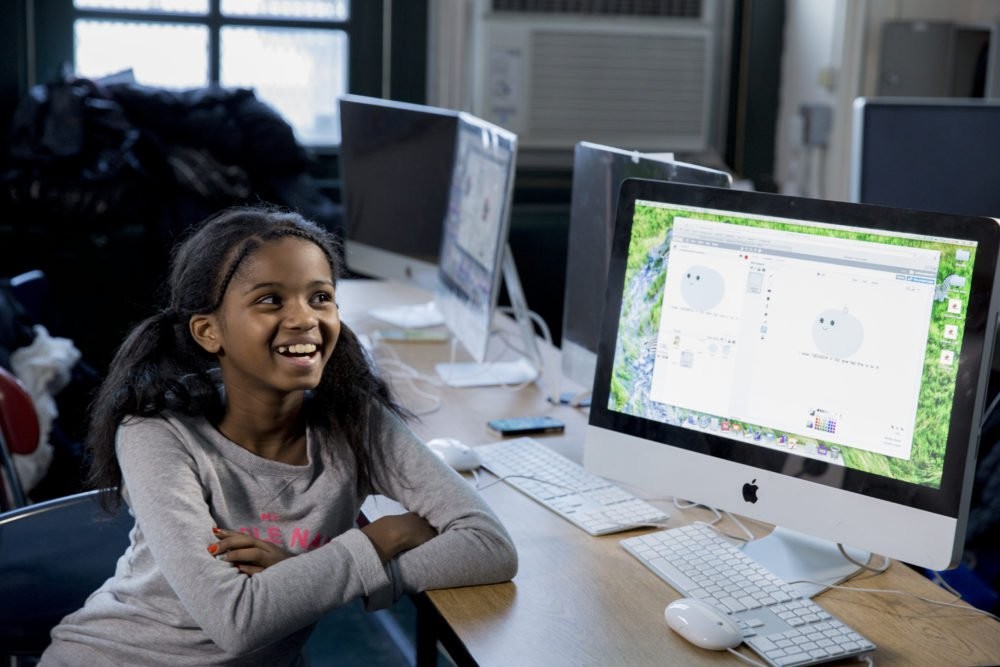Mission
“You Can’t Be What You Can’t See”: How Trilogy and Girls Who Code Are Changing the Face of Technology
Written by Stephen Eichinger on Jan 27, 2020

Fewer than one in five computer science graduates are female. Faced with this statistic, young women across the country look to role models for inspiration—and courage.
Since 2017, Trilogy Education, a 2U, Inc. brand, has been working with Girls Who Code (GWC) to bridge gender gaps in and out of the classroom by educating the next generation of female coders. In that time, GWC has hired graduates of Trilogy-powered boot camps to serve as instructors for their Summer Immersion Program.
We sat down with two members of GWC’s hiring team, Deborah Waldman, director of people and culture, and Elizabeth Mendoza, recruitment manager, to discuss how Trilogy graduates are teaching young women that no obstacle is too large to overcome—and that the best time to change the future is today.
Girls Who Code has a mission of “changing the image of what a programmer looks like.” What does this mean for women and the future of the tech profession?
While touring schools, our founder Reshma Saujani noticed a real void of the female presence in computer science classrooms. She wondered how this lack of representation in classrooms was affecting the workplace. As she started to dig into the gender gap and what it actually looks like, she found her passion—and she turned that passion into Girls Who Code.
Through spring 2019, GWC has directly served 185,000 girls. These girls are on a career path where they don’t see a lot of people who look like them—and, as Reshma always says, “You can’t be what you can’t see.” With Trilogy and the work that we do at GWC, we can be that example and aid in closing the gender gap.
What does your team look for when hiring Girls Who Code instructors? How do graduates of Trilogy-powered boot camps fit that hiring rubric?
We look for people who are passionate about our mission of closing the gender gap in technology—about educating girls, elevating women, and building a community that promotes diversity and inclusion.
We always look for people with proficiency in one or more of the coding languages we use and we tend to find those skills in Trilogy graduates. JavaScript, HTML, CSS—these are definitely languages we teach our students in the Summer Immersion Programs. Trilogy graduates learn these skills in boot camp, and teaching at GWC is an opportunity for them to continue learning and educate others while helping us close the gender gap in technology.
What made Trilogy a good strategic partner for Girls Who Code?
We were looking for partners who could provide us with talent based in the different markets where we offer our summer programs. One of the things that was great about Trilogy is they have programs running on campuses where we also have programs—so there was a nice alignment there.
Graduates of Trilogy-powered boot camps are really impacting our girls’ lives by changing their trajectory and how they view themselves. About 65% of our Trilogy hires have been women. Students see in their instructors a role model—somebody who looks like them, whether that’s female, the same race and ethnicity, or someone who identifies in a particular way. They can say, “Oh! This person is like me and they’re doing this. I can do it, too.”
How do graduates of Trilogy boot camps benefit Girls Who Code?
Trilogy graduates provide the best possible experience for young women who are just starting out. They’re providing leadership and being role models. They’re teaching growth mindset. They’re sharing their personal experiences. They’re empathetic. They help students persist, because they’ve also had to persist. These graduates are helping us train young women to go out into the world, finish their high school degree, and think about computer science or engineering as a possible career path.
Over the past two summers, Trilogy graduates have taught 80 girls not only to code but also to be brave, problem-solve, and support one another while learning. Every student they teach on our behalf is another student who’s been shown that technology is an opportunity for them—another student whose eyes are opened to what is possible.
What advice would you give a recruiter who might be hesitant to hire a boot camp graduate?
Hiring is such a hard thing in general, because you’re talking about human beings. There are so many different factors that come into play around whether somebody is going to be successful in a particular environment.
What’s really nice about boot camp graduates is that these are folks who have made a clear decision to either change careers or attend a program in lieu of going to a four-year college. These are people who have been very intentional about making their educational investment. That shows they know their mind and are self-reflective—especially if they’re someone who’s switched careers or left college after realizing that it wasn��’t for them. Generally speaking, that choice indicates a real commitment and dedication.